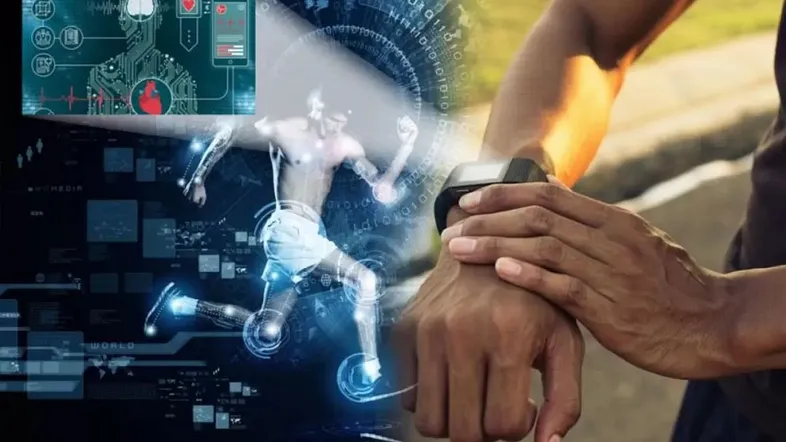Wearable health technology is rapidly becoming a cornerstone of modern healthcare. With continuous advancements in smart devices, these gadgets are not only transforming the way we monitor our health but also empowering individuals to take control of their well-being. From fitness trackers to medical-grade devices, wearable health tech offers a wide array of benefits that cater to different needs. In this article, we’ll explore how wearable health technology is changing the healthcare landscape, its impact on both users and medical professionals, and the future of these innovations.
What is Wearable Health Technology?
Wearable health tech refers to electronic devices designed to be worn on the body, often incorporating sensors and other technologies to track, monitor, and even manage various health parameters. These devices are usually connected to smartphones or other platforms that analyze the collected data. Common wearable health tech includes fitness trackers, smartwatches, heart rate monitors, glucose monitors, and sleep trackers.
Types of Wearable Health Tech Devices
- Fitness Trackers Fitness trackers are one of the most popular types of wearable health tech. These devices measure physical activity, track steps, monitor heart rate, and even calculate calories burned. Some advanced models offer features like GPS tracking, sleep monitoring, and stress management.
- Smartwatches Smartwatches offer the versatility of a fitness tracker with additional features, including notifications for calls, messages, and app updates. Models like the Apple Watch and Fitbit Sense can track your heart rate, blood oxygen levels, and even provide ECG readings to help monitor overall health.
- Medical-Grade Devices Some wearables are designed for serious health conditions, offering precise monitoring and management. Devices such as continuous glucose monitors (CGMs) for diabetes or wearable ECG monitors allow individuals to track critical health metrics and share real-time data with healthcare providers.
- Sleep Trackers Sleep is one of the most important yet often overlooked aspects of health. Wearable sleep trackers help individuals gain insights into their sleep patterns, providing data on deep sleep, REM cycles, and overall sleep quality. This information can be used to identify sleep disorders and improve overall well-being.
- Wearable ECG Monitors For individuals with cardiovascular issues, wearable ECG monitors are game-changers. These devices allow users to record their heart’s electrical activity, identifying irregularities like arrhythmias, and transmitting this data to doctors for timely intervention.
The Benefits of Wearable Health Tech
1. Real-Time Monitoring and Alerts
One of the most significant advantages of wearable health tech is its ability to provide real-time data. These devices continuously monitor vital health metrics, such as heart rate, blood pressure, and oxygen saturation levels. For users with chronic conditions, this continuous monitoring can provide early warning signs of potential health issues. Alerts or notifications can be sent to users or their caregivers, ensuring timely intervention and reducing the risk of serious health events.
2. Empowering Users to Take Control
Wearable health tech encourages individuals to be proactive about their health. Instead of relying on periodic checkups, users can track their daily activity levels, diet, sleep patterns, and more, gaining valuable insights into how their lifestyle affects their health. This empowerment can lead to better decision-making, whether it’s adopting healthier habits or seeking medical advice when needed.
3. Improved Chronic Disease Management
Wearable devices play a pivotal role in managing chronic conditions such as diabetes, hypertension, and cardiovascular disease. For example, patients with diabetes can use continuous glucose monitors to track their blood sugar levels, enabling them to adjust their insulin intake based on real-time readings. This personalized approach to care helps reduce complications and hospital visits.
4. Enhanced Communication with Healthcare Providers
Wearable health tech is revolutionizing communication between patients and healthcare providers. Many devices are designed to seamlessly share data with doctors, allowing for more informed decision-making. For example, wearable ECG monitors can transmit heart data to cardiologists in real-time, helping them detect abnormal rhythms and decide on necessary treatments without the patient having to visit the clinic.
Challenges and Concerns with Wearable Health Tech
1. Data Privacy and Security
As wearable health tech collects sensitive personal health data, concerns about privacy and data security have arisen. Protecting this data from cyber threats and unauthorized access is crucial. Manufacturers and healthcare providers must ensure that strict security measures are in place to protect user information.
2. Accuracy and Reliability
While wearable health tech has made significant strides, there are concerns regarding the accuracy of some devices. In particular, fitness trackers and smartwatches may not always provide medical-grade accuracy, which is crucial when it comes to diagnosing or managing serious health conditions. It is important for users to understand the limitations of their devices and use them as a supplementary tool rather than a replacement for professional medical care.
3. Affordability
While the market for wearable health devices has expanded, many medical-grade devices remain expensive. For individuals who need constant health monitoring, the cost of these devices, as well as any associated subscriptions, can be prohibitive. However, as technology advances, the price of wearables is likely to decrease, making them more accessible to a broader audience.
The Future of Wearable Health Technology
As technology continues to evolve, so too does the potential for wearable health devices. In the future, we can expect wearables to become even more integrated into our daily lives, offering more advanced monitoring capabilities and personalized care. AI-powered wearables could predict health issues before they occur by analyzing trends and offering preventative measures. Additionally, the rise of 5G networks could improve the real-time transmission of health data, making remote monitoring and telemedicine more efficient.
Wearable health tech also holds the potential to play a significant role in aging populations. With the ability to track vital signs, manage medications, and monitor cognitive function, wearables could help elderly individuals maintain independence while ensuring that caregivers and family members are aware of any health changes.
Conclusion
Wearable health tech is transforming healthcare by providing users with the tools to monitor and manage their health in real time. From fitness trackers to medical-grade devices, wearables offer numerous benefits, including empowering individuals to take control of their well-being, improving chronic disease management, and enhancing communication with healthcare providers. While challenges like data privacy, accuracy, and affordability remain, the future of wearable health tech looks promising, with innovations that could lead to a more personalized, efficient, and accessible healthcare system.



![you can fixed the error code [pii_email_dcd411ad616a51787c97] in 2022? you can fixed the error code [pii_email_dcd411ad616a51787c97] in 2022?](https://latestretail.com/wp-content/uploads/2021/08/pii_email_dcd411ad616a51787c97-error-code-solved_18448-1.jpg)

